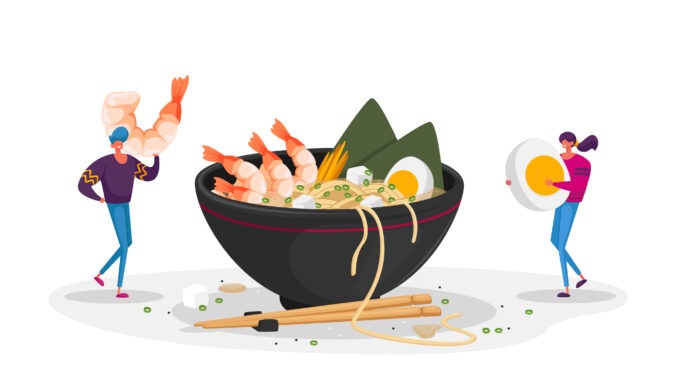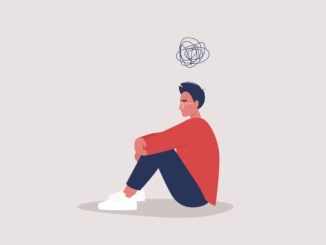
Leading nutritionist, podcast host and author Rhiannon Lambert joins Happiful’s podcast to discuss the debunking of myths and the link between food and psychology
CREDIT: This is an edited version of an article that originally appeared on Happiful
Rhiannon’s book, The Science of Nutrition: Debunk the Diet Myths and Learn How to Eat Well for Health and Happiness, was published at the end of 2021 and immediately became a bestseller. There’s a good reason for this; Rhiannon’s encyclopedic book is full of evidence-based information about nutrition and covers a whole spectrum of subjects from the aging brain to IBS, eating for the menopause, sugar, the FODMAP diet, children’s nutrition – and everything in between. It’s more than a book, it’s a lifelong nutrition reference tome – written and presented in a way to make the complex accessible.
Rhiannon says this is what motivates her to get up and go to work everyday. Helping people to understand that, while nutrition can be complicated, there’s scientifically proven information that can be broken down by anyone – perhaps with a little support – and applied to day-to-day life with positive results.
Busting myths
Beyond her brilliant new book, Rhiannon is the host of the chart-topping Food for Thought podcast, the Rhitrition platform, and leads a team of clinicians in her private practice. She’s determined to counter the poor and untrue nutritional advice that exists across online platforms.
Rhiannon has seen the impact of this ‘advice’ up close and personal. “I’ve witnessed the damage that misinformation can cause through my work in the clinic,” she explains. “Nutrition is an area where we can become really vulnerable because we want to take control of our lives and we want to make a difference.
“When you’re in the position to be looking for answers, sadly, search engines or your favourite influencer might, at that time, be pushing some miracle diet or product that seems to be the answer, when it’s not at all. This can have really devastating consequences on people’s relationships with food, as well as their physical health.”
More than what we eat
From the beginning of her career in nutrition, Rhiannon was aware of the inextricable link between our minds and our attitudes to diet in the broadest sense. “I understood very quickly that food is so psychological. Everyone has a different journey, a different outlook, social norms, barriers, languages, cultures, ethnicities – you name it,” she explains. “All of these factors shape how we see the world of food, our relationship with it, and our ability to digest information about how and what we eat”.
Not factoring our personal and cultural history with food into the picture, Rhiannon notes, is missing out an important element of any potential solution to issues with our individual diets. “I feel that one big barrier to getting behaviour change in relation to dietary aspects is that this isn’t taken into account. In order to eat well, you need to understand your journey and what’s happened – so much of what we eat is linked to enjoyment and emotions and a whole spectrum of these things.”
Hear more from Rhiannon’s on her episode of I am. I have


Be the first to comment